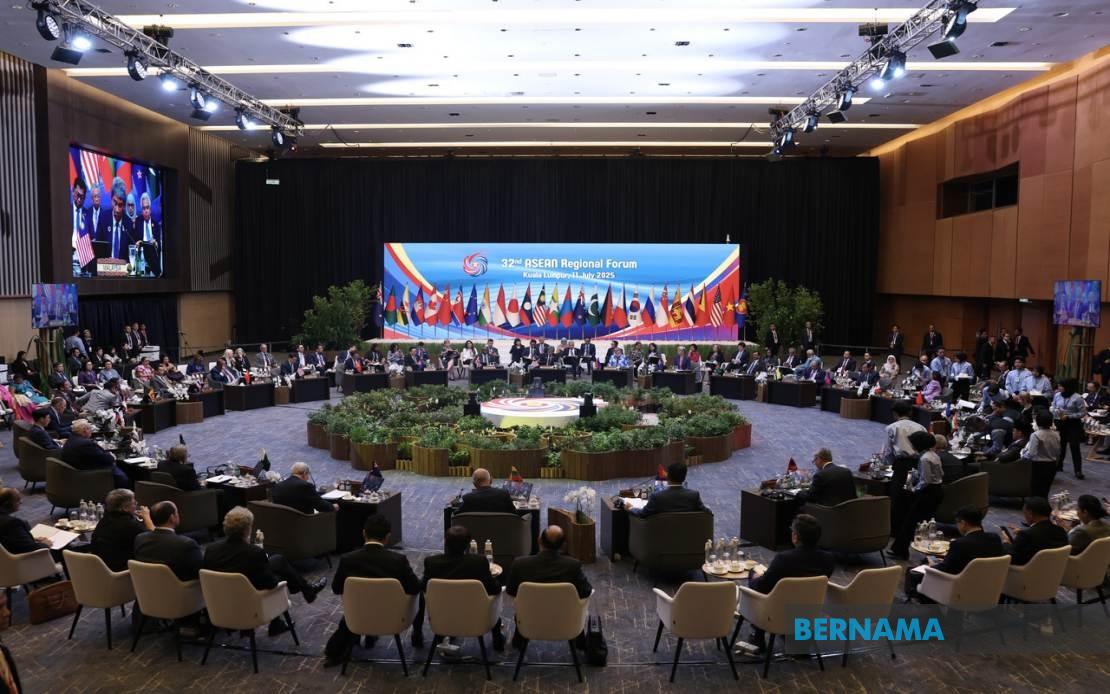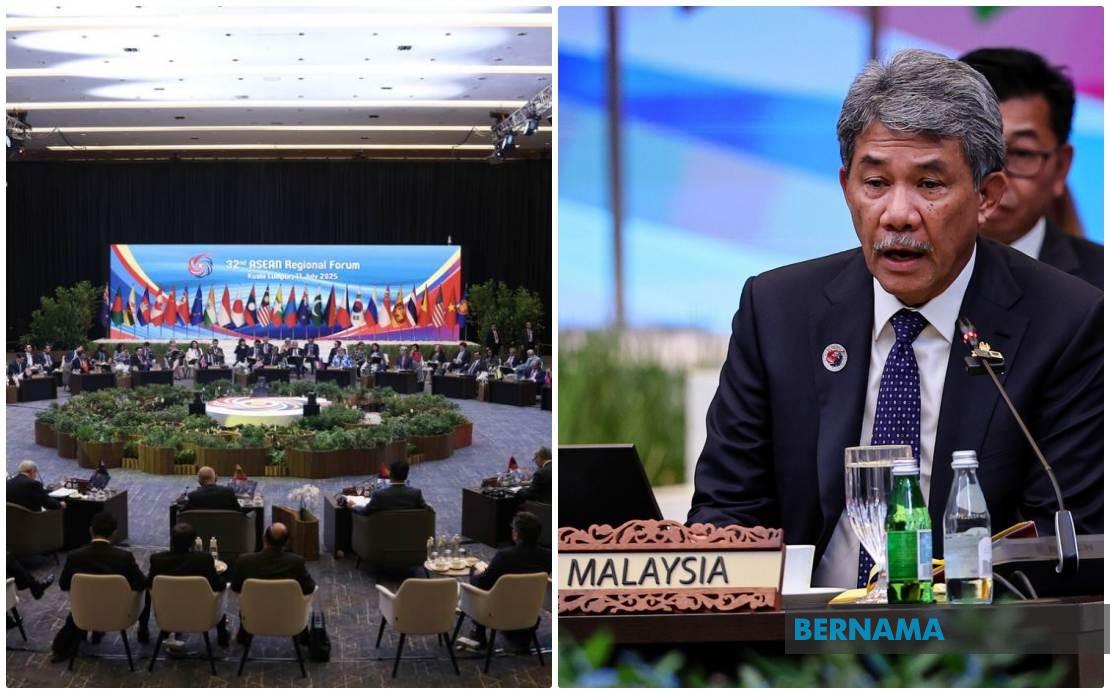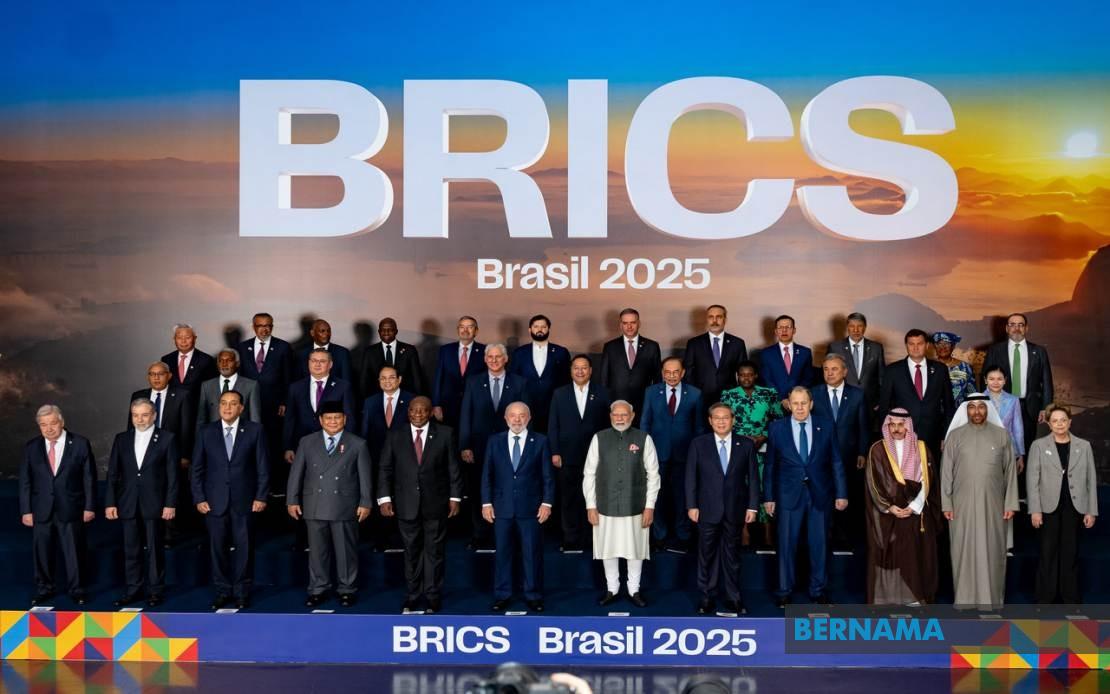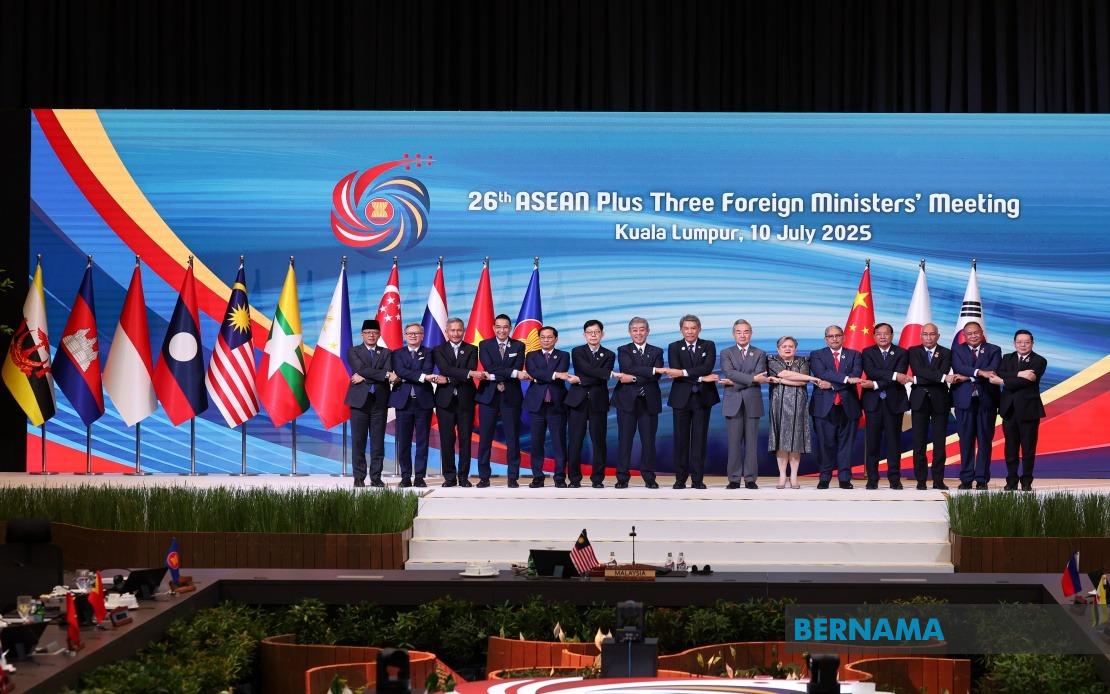EAS FOREIGN MINISTERS REAFFIRM COMMITMENT TO STRENGTHEN STRATEGIC DIALOGUE PLATFORM
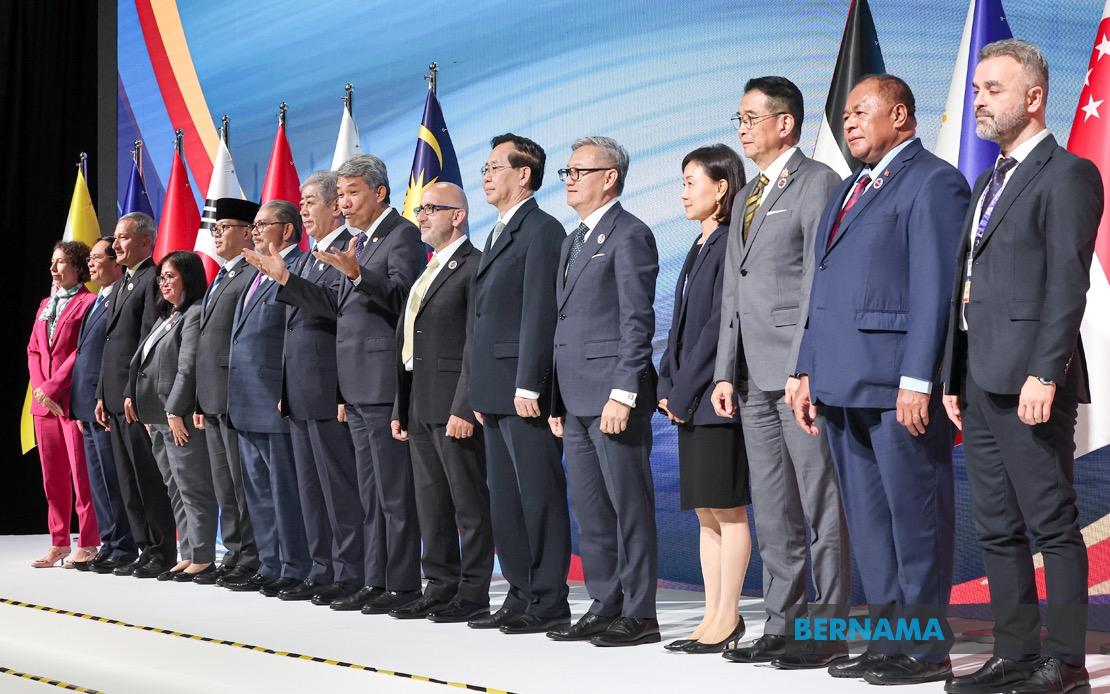
By Nazira Hasanah Nasaruddin & Ahmad Aidil Syukri Hamzah
KUALA LUMPUR, July 12 (Bernama) -- The East Asia Summit (EAS) Foreign Ministers have reaffirmed their commitment to strengthening the EAS as the premier leaders-led platform for strategic dialogue and regional cooperation, amid evolving geopolitical dynamics.
According to the ASEAN Chairman’s Statement issued after the 15th EAS Foreign Ministers’ Meeting here, the ministers underlined the forum’s role in promoting peace, stability and economic prosperity in East Asia, in line with the ASEAN Charter and key regional declarations including the Treaty of Amity and Cooperation (TAC) and the ASEAN Outlook on the Indo-Pacific (AOIP).
They reiterated that the EAS must remain open, inclusive and ASEAN-centred while upholding a rules-based regional architecture grounded in international law and the United Nations Charter.
The meeting also emphasised the importance of fostering strategic trust and ensuring responsible, transparent and predictable behaviour among nations, with full respect for sovereignty and territorial integrity.
Amid shifting global dynamics, the ministers acknowledged the urgency of reinforcing the EAS’s relevance and effectiveness, particularly as the summit approaches its 20th anniversary.
The ministers reaffirmed ASEAN’s central role as the region’s convenor for strategic dialogue and stressed the value of confidence-building measures and preventive diplomacy in maintaining peace and stability in the Indo-Pacific.
They also called for deeper collaboration through ASEAN-led mechanisms and greater synergy across existing regional institutions to avoid duplication and promote coherence in addressing regional challenges.
Efforts to improve the EAS’s internal coordination and follow-up mechanisms were also noted, including the need for more timely implementation of leaders’ decisions during inter-sessional periods.
In this context, the meeting encouraged further enhancement of the EAS Unit at the ASEAN Secretariat to support coordination and drive more effective cooperation among participating countries.
The EAS also expressed concern over various regional and international developments, reiterating calls for peaceful solutions and adherence to international law.
On the South China Sea, they reaffirmed the importance of maintaining peace, security, stability, safety and freedom of navigation and overflight.
Some ministers voiced concern over incidents that have eroded trust and could undermine regional stability.
The ministers stressed the importance of non-militarisation, self-restraint and the peaceful resolution of disputes in accordance with international law, including the 1982 United Nations Convention on the Law of the Sea (UNCLOS).
They also welcomed progress in the Code of Conduct (COC) negotiations, including the renaming of the Single Draft Negotiating Text to the Draft COC.
Meanwhile, regarding the Middle East, the meeting expressed serious concern over ongoing tensions and the worsening humanitarian situation in Gaza.
It called for immediate and sustained humanitarian access and urged all parties to support ceasefire efforts as outlined in UN Security Council Resolution 2735.
The ministers condemned attacks on civilians and civilian infrastructure and called for the unconditional release of all hostages.
The meeting reaffirmed support for the rights of the Palestinian people, including the two-state solution, and acknowledged recent rulings and opinions by the International Court of Justice (ICJ) and UN resolutions.
Some ministers also raised alarm over the escalation following Israel’s attack on Iran on June 13 and welcomed the ceasefire reached on June 24, brokered by the United States and mediated by Qatar.
The meeting called on all parties to honour the ceasefire and resolve differences peacefully, while protecting civilians in accordance with international humanitarian and human rights law.
-- BERNAMA
